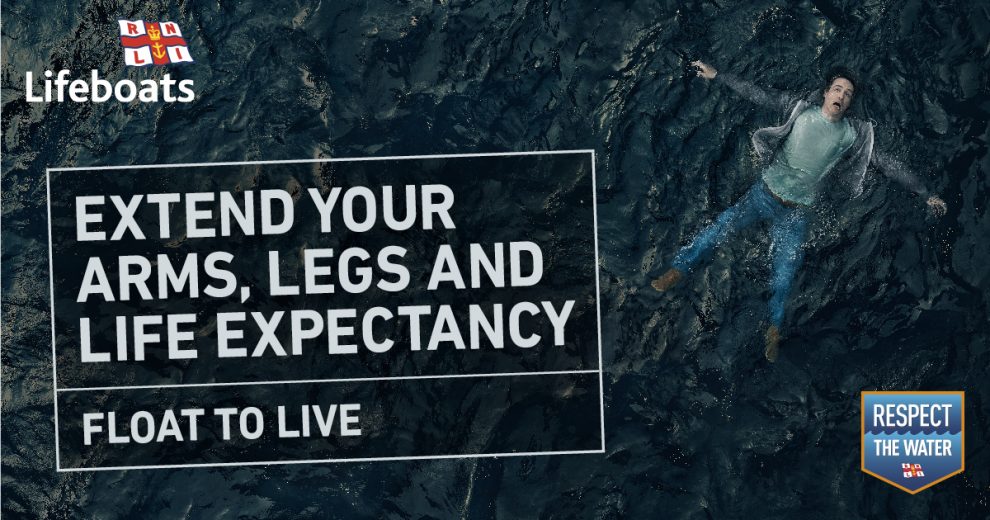
COASTAL death figures released today (Aug 1) by the RNLI show more people die at the Welsh coast in August than in any other month of the year, in line with the UK national trend.
Yet, worryingly, research from the charity shows less than one-fifth (17%) of the UK population say they would call 999 immediately to request help if they saw someone fall into open water.
The number of near-fatal incidents is also highest in August, with the charity’s Welsh lifeboat crews and lifeguards saving the most lives during this busy summer month.
The charity is reminding people to dial 999 and ask for the Coastguard in the event of an emergency at the coast.
Over the past five years, there have been 16 deaths at the Welsh coast in August, more than in any other month.
This is also the busiest time of year for the RNLI’s lifesavers. Last August the charity’s lifeboat crews in Wales launched their lifeboats in response to 278 emergencies (23% of their total annual launches and the highest number in the five years). Meanwhile, RNLI lifeguards in Wales responded to 690 incidents on beaches (55% of their total annual incidents and the highest number in the five years).
Last August, RNLI lifeboat crews and lifeguards in Wales saved the lives of 36 people (37% of all the lives they saved in 2016).
As part of the RNLI’s drowning prevention campaign, Respect the Water, the charity is calling on the public to help save more lives during this busy August period by remembering and sharing key survival skills. First, if you see someone else in danger in the water, fight your instincts to go in after them and instead call 999 and ask for the Coastguard. Research commissioned by the RNLI has revealed that less than one-fifth (17%) of people in the UK say they would call 999 immediately to request help if they saw someone fall into open water5.
While summer air temperatures may be warm, UK and Irish waters rarely exceed 15C, making them cold enough year-round to trigger cold water shock, which causes the instinctive reaction to gasp and swim hard, which can quickly lead to drowning. With around half the coastal deaths each year being people who accidentally slip or fall into the water, the RNLI’s second piece of advice is: If you fall into cold water, fight your instincts to swim hard and thrash about. Instead, float for 60–90 seconds until the effects of cold water shock pass and you can catch your breath before then swimming to safety or calling for help.
Helen Church, RNLI Community Safety Partner for Wales, says: “With summer holidays upon us and hopefully some hot weather, our fantastic beaches are naturally a draw for many people – but sadly this also means more people tragically losing their lives or getting into serious danger at the coast.
“We need to start a national conversation that encourages people to fight their instincts around water, so we are asking people to remember and share two skills.The first is, if you see someone else in trouble, don’t go into the water yourself as you may also end up in serious danger. Instead, dial 999 and ask for the Coastguard. The second is, if you fall into cold water, fight your instincts to swim hard or thrash about as this could lead to drowning. Instead, relax and float on your back, keeping your airway clear, for around 60–90 seconds.
“This will allow the effects of cold water shock to pass so you can regain control of your breathing and then swim to safety or call for help. Just remembering these two simple points could help save your life, or someone else’s, this summer.”
Anyone planning a trip to the beach is advised by the RNLI to choose a lifeguarded beach and swim between the red and yellow flags, which is the area most closely monitored by the lifeguards.
The RNLI’s national drowning prevention campaign, Respect the Water, is part of the charity’s work to halve coastal drownings by 2024. The theme of the campaign is: ‘Fight your instincts, not the water.’
It reminds people of the risks but, most importantly, provides them with the skills to survive for longer if they unexpectedly find themselves in water, and the knowledge of what to do should they see someone else in danger. ]
The RNLI is asking people to visit RNLI.org/RespectTheWater where they will find safety advice. On social media search #RespectTheWater.


















Add Comment